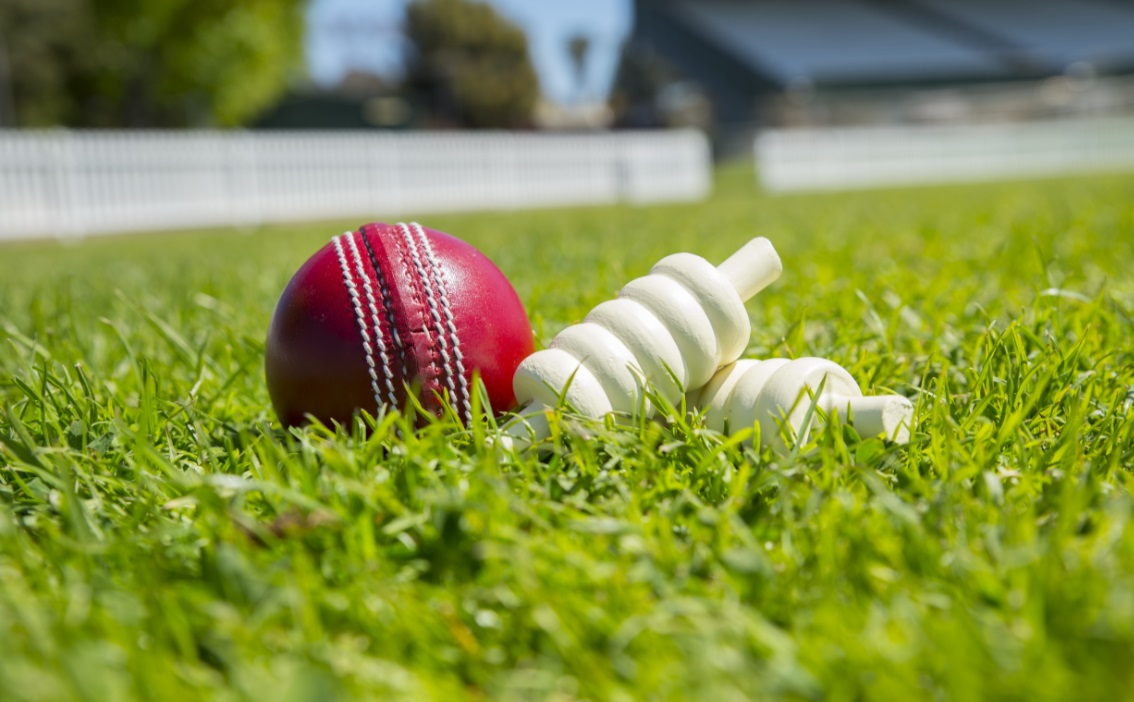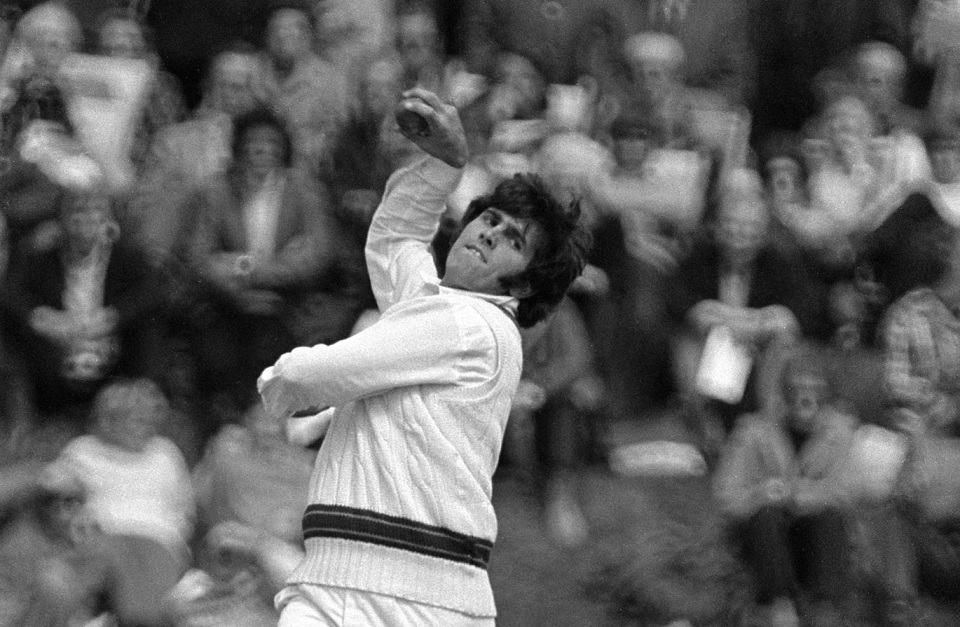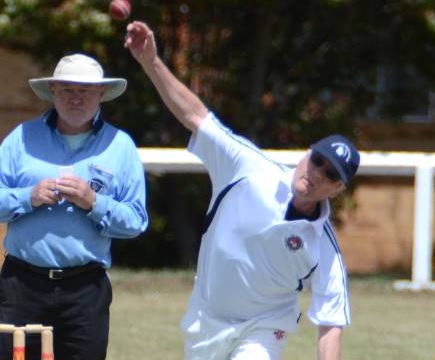You need a sense of humour to play cricket
Kevin Pike | May 29, 2023

Chapter 2 - You need a sense of humour to play cricket!
Country club cricket in the 1970’s was, I suspect at an all-time high, both in standard and player numbers. It saddens me now to see that in many country- townships, cricket is either non-existent or close to it. When I was recruited to play with St Peters Cricket Club in Armidale in its 1975/1976 pre-season recruiting campaign, I gained the impression that St Peters was a club on the way up.
The next decade in fact proved to be the “golden era” for St Peters CC. On a recent visit to the cricket archives in Armidale, Mike Porter, the President of our Regional Association for over three decades, presented to me the historic records of premiership teams, with St Peters winning over the ensuing decade, five club championships, three A Grade Premierships, one 2nd Grade Premiership and two 3rd Grade Premierships.
St Peters was a club that was managed well during my many years there. There was an emphasis on supporting and promoting junior cricket with many senior players like Bede Ryan, Ian Watts and Brian Gream, spending many seasons coaching junior school and representative teams on their Saturday mornings, before their competition matches in the after-noon. These fellows made a huge impression on generations of younger cricketers, through their dedication and obvious love for the sport. They imparted not only the cricketing fundamentals, but also the importance of tradition and respect for the game.
I remember early on in my introduction to the senior players, Ian in a semi-serious mood during after match pub celebrations (or was it commiserations?), stating one of his often quoted dry one-liners- “You need a sense of humour to play cricket”!
Cricketers should be mindful of such sage quotations because, as we all know, matches never always end the way they are often headed!
This proved to be the case in a mid- 1970’s match between St Peters and Unicorns, played at the lovely Bellevue Oval at UNE. Unicorns must have won the toss and batted first. Gordon Gregory from that team, not having had his lunch this day and being listed to bat at position 11, decided to take the opportunity to drive to town and get some lunch, only to return a short time later, and was in complete shock to find that Unicorns had been dismissed for 18 and that the St Peters innings had already started!
I was told that the” young gun” -fast bowler, Brian (Duster) Bower and his more experienced opening bowing partner, John Thompson shared the nine wickets between them. (Gordon of course would have been timed out during his lunch-break!)
The first day ended with St Peters ahead by over 100 runs and the team were confident that they could push towards an important out-right win on the following Saturday. In those days the preference among virtually all the players was that two-day cricket was the way to go, not the hit and miss impression that many players had at that time of the early one-dayers!
Also, in those seasons, a twelfth-man replacement was allowed on day 2 and Unicorns had a very handy substitute in batsman -wicket-keeper Brian (Crab) McIntyre. Brian was an out-standing “Rep” cricketer for Universities and Tablelands and proved his reputation with an outstanding century, hitting the St Peters bowlers, who were so dominant on day one, to all parts of Bellevue!
With a moderate but achievable target St Peters capitulated in the second innings. Yes, Unicorns winning this match out-right, against all the betting odds seven days earlier and filing those memories into Club Folk -Lore!
Bede was captain and Ian, wicket-keeper for many of those “golden” years. Both were much respected players with Bede being one of the dominant batsman in the A Grade competition for many years and was a very astute captain. Between them they demanded a certain discipline from their players and were sometimes prone to show their disappointment at missed opportunities in the field or indiscriminate shots by their team mates or sloppy lines bowled. I suspect most fellows of their generation understood these leadership emotions on the field, but I noticed that some of the younger players were more sensitive and needed to be mothered!
My early captains in the lower grades with St Peters were Dennis McGiveron and Brian Gream.
Both were great guys! I hope Dennis doesn’t mind me telling the following stories but he was a most enthusiastic person in everything he did. We were playing Ex Services in one match against a team led by Bruce Sewell.
Bruce was a most determined and competitive cricketer. As a batsman, he was extremely hard to dismiss and as a medium -slow bowler, he was very accurate and more often than not, frustrated batsman into losing their own wicket.
Bruce was batting steadily this day and Dennis noticed that Bruce was consistently “backing up”.
Dennis in his enthusiasm, grabbed the ball at the next over change and brought himself on to bowl. With the first ball of his over, without warning, he whipped his arm over in his bowling action and whipped off the bails at the non-striker’s end! Bruce was a little upset with this “Mankad” dismissal and exclaimed as he walked off the field,” Dennis, the gentlemanly thing to do was to warn me!” -Quick as a flash Dennis retorted, “Well Bruce, I’m no gentleman!”
My first season with St Peters was not so memorable, other than it helped if you did in fact have a sense of humour!
Firstly, the cricket season started in September and often the early season weather at times was bitterly cold. I remember, not so fondly, an afternoon at the Armidale Race-course fields, which were as bleak as Siberia this day, with snow falling and the cold westerly blowing across the open spaces from the direction of the town. Blokes were playing with beanies, track suits and my favourite “duffle -coat “(fashion at the time!), which was lent to those boys taking on the umpire’s duties.
I had one of the few cars in the team and most of the team took refuge in my car when not batting or umpiring, and for comfort with the car-heater on “full-bore”! To entertain ourselves, I had the newly released, Neil Dimond’s “Hot August Night” cassette, which was a hit at the time and it played continuously through-out the afternoon. I have no idea, who the match was against or the match result, only how pleased we were to eventually get to the pub after play! Unfortunately, in my haste to get to the pub and a warm fire, the Pike owned “duffle-coat “and Neil Dimond’s cassette went permanently AWOL!
The highlight for me in 1975 was the visit by the NSW Sheffield team, that stopped off in Armidale for a match against Northern Tablelands. The NSW team was on their way through to Brisbane for their annual fixture at The Gaba. As a newbie to Armidale cricket that season, Dennis invited me to the Armidale Airport to welcome the players to Armidale. I remember thinking, as he alighted from the plane, what a handsome young fellow, Kerry O’Keefe was in those days!
The match was played at Bellevue Oval. Coincidently, Bellevue has the same field -dimensions as The Sydney Cricket Ground. The Tablelands team included, Brian McIntyre and Peter Wynn from Unicorns, Gary Bensley from Inverell and Lindsay Mulligan from Guyra. In much later years, I was re-introduced to both Crab and Peter, when their former university ex-students’ club, UNEX returned to cricket in Veterans NSW cricket between 2009 and 2018 under the joint team management of Golden Oldie mates, John Coglan (UNE) and Mike Muldoon (Waratahs).
The NSW team included: Doug Walters(c), Rick McCosker, Ross Collins, Alan Turner, Steve Rixon, Peter Toohey, David Hourn, David Colley, Len Pascoe, Stuart Webster, Garry Gilmour, Kerry O’Keefe.
As we watched the match together, Dennis commented that David Colley was bowling very quickly and he did appear to be bowling much more quickly, than in the previous season.

David Colley
After the match the NSW Team was hosted for cocktails at the Armidale Bowling and was warmly welcomed to Armidale by NECA President, Terry Betts and the many Armidale cricketers present. Dennis and I cornered David Colley and immediately enquired of David, whether he had in fact increased his pace since last year.
“That was very observant of you “, David replied. “Yes, I have been working hard to get my pace back up to where it is required to be for considered again for Test Cricket”. Unfortunately, Colley was never again selected to play for Australia, although he continued to play for NSW until his final season in 1977/1978.
David Colley was really the first of many international players that I have had the pleasure of meeting over the years.
Like many players of that generation, he was a down to earth, easy to talk to and was genuinely interested in making the time and effort in engaging with the cricket public, at such promotional matches.
World Series Cricket, that followed soon afterwards, was the catalyst for the start of greater professionalism in cricket. Whilst the players started to earn, what they were rightly entitled to from providing sporting entertainment, It seemed to me, that often their availability to the general public, was not quite so generously made available, as was the case during this visit by the NSW team to Armidale in 1975.
_____________________________________________________________________________________
Pen Portrait- David Colley
David Colley played 87 times for New South Wales from 1969/1970 to 1977/1978.
He was a right-arm fast-medium quick. He took 236 First class wickets at 31.6 average.
He scored 2,2734 runs at an average of 23.74. He played 3 Tests in 1972 against England taking 5 test wickets and scored 84 runs (one innings of 50+) at an average of 21.
Playing for Australia against Yorkshire on that tour, he is credited with still having the Australian record of taking 3/30 in a List A match v Yorkshire.








